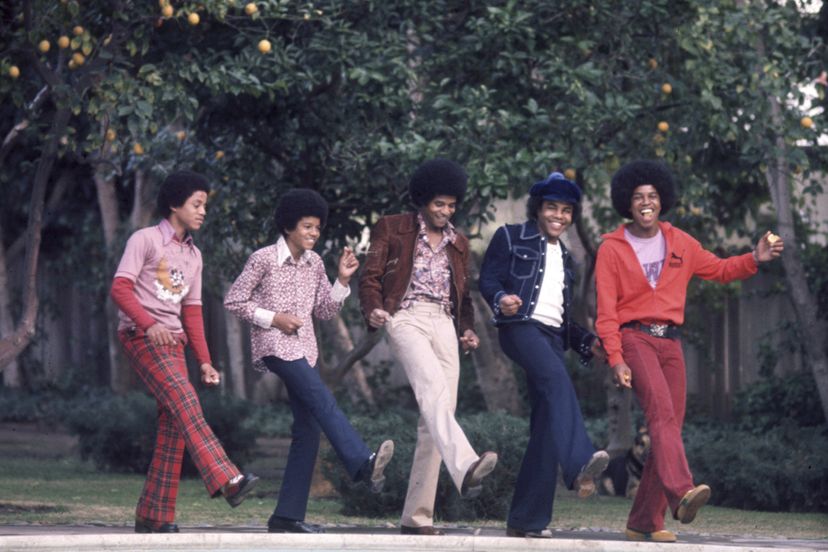
About This Quiz
Ah, the '70s. After the tumultuous counterculture of the 1960s, music in the 1970s was more relaxing and danceable. Popular music genres included progressive rock, punk/new wave and, of course, disco. Who can forget those glittering disco balls hanging above the strobe-lighted dance floors? The crush of people clad in platform shoes and silky shirts? Simplistic songs such as "The Hustle," and easy-to-master dance moves like the bump?
The falsetto-y Bee Gees, plus stars like Donna Summer, Diana Ross and Gloria Gaynor, all created some of the era's most iconic disco beats. When it came to progressive rock, with its classical influences, lengthy compositions and keyboard dominance, groups like Electric Light Orchestra, Supertramp and Queen were on top. Then there were groups like Blondie and the Sex Pistols bringing us punk rock/new wave, and Sly and the Family Stone and Kool & the Gang wooing us with funk and soul. It didn't get much better than this.
In retrospect, '70s music formed a bridge between the hippie '60s and yuppie '80s, even if you didn't realize it at the time (or weren't around yet!). Think you know enough about the era's iconic tunes to figure out hit songs from their opening lines? Then take the quiz!
                                                          ÂDebbie Harry co-wrote "Heart of Glass," one of Blondie's biggest hits.
Glen Campbell sang his version of "Rhinestone Cowboy" in 1975; it was on one of roughly 70 albums that he released.
Janis Joplin's 1971 version of "Me and Bobby McGee" wasn't even released until after her death, which helped fuel the song's popularity.
Advertisement
"Band on the Run" was an international hit for Paul McCartney and Wings.
The Bee Gees absolutely owned the 70s charts, thanks in part to songs like "How Deep Is Your Love."
In 1970, Diana Ross's version of "Ain't No Mountain High Enough" rocketed her to the No. 1 spot on the Billboard charts in 1970.
Advertisement
"My Sharona" was a direct reference to a girlfriend of one of the members of The Knack.
"Don't Stop 'Til You Get Enough" by Michael Jackson came out in 1979, and it stayed at the No. 1 spot for six weeks.
Andy Gibb's solo career was fueled by love songs like "I Just Want to Be Your Everything."
Advertisement
Harry Chapin wrote "Cat's in the Cradle" based on a poem written by his wife.
"I Feel Love" was a Top 10 hit for Donna Summer in 1977.
The song "What's Goin' On," by Marvin Gaye, is featured on the album of the same name. It's regarded as one of the best albums of the entire century.
Advertisement
The mishmash of characters in "Walk On The Wild Side," are inspired partly by people that Lou Reed met in real life.
David Bowie and Brian Eno shared songwriting credits on "Heroes," which is now regarded as one of Bowie's best-known songs.
"Smoke On The Water," a 1972 song by Deep Purple, has one of the most recognizable guitar riffs in classic rock.
Advertisement
"I Wanna Be Your Lover" became Prince's first hit song when it was released in 1979.
"Highway to Hell" was one of AC/DC's best known songs, and it was on the last album that the band made before Bon Scott's death.
Marvin Gaye's "Let's Get It On" traded the political activism of his previous album for a more personal theme.
Advertisement
Bruce Springsteen wrote "Born to Run" dreaming of commercial success; the hit propelled him to stardom.
Donna Summer's "Hot Stuff" was a step away from disco in the direction of rock, and it become a crowd favorite.
Black Sabbath included "Paranoid" as an afterthought, not anticipating that it would become one of the most famous songs in metal.
Advertisement
"Night Fever" was just one more example of a decade dominated by the Bee Gees.
Somewhere, Debby Boone is still waiting by the window and singing "You Light Up My Life."
"Go Your Own Way" still burns with all of the desperation Fleetwood Mac could summon on their 1977 album "Rumours."
Advertisement
Linda Ronstadt and James Taylor provided backing vocals for "Heart of Gold," Neil Young's only No. 1 single.
The Sex Pistols had your 70s rebellion right here, with "Anarchy in the U.K.," which was later featured on "Never Mind the Bollocks, Here's the Sex Pistols."
It was only No. 1 for four weeks, but Don McLean's "American Pie" is a cultural icon.
Advertisement
Stevie Nicks wrote "Dreams" amidst Fleetwood Mac's infamous personal upheavals in the 1970s.
"Tangled Up In Blue" is one of Bob Dylan's classics from 1975's "Blood on the Tracks."
This song, "Blitzkrieg Bop," by the Ramones, is nearly ubiquitous at stadiums all over the world during big sporting events.
Advertisement